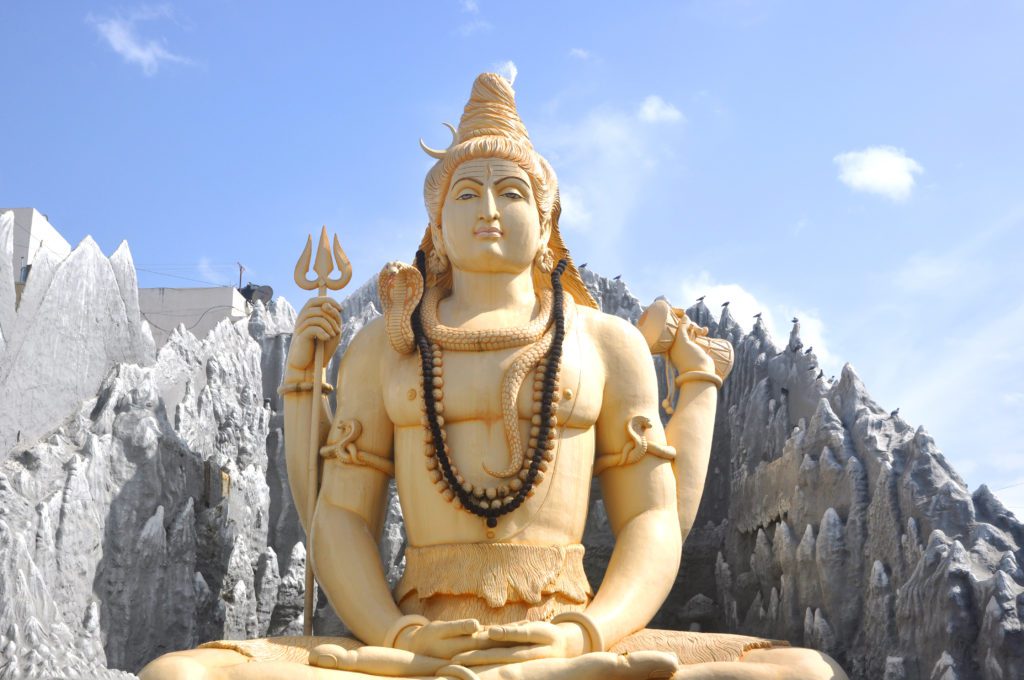Hindu Funeral Rites

What Are Hindu Funeral Rites?
Hindus believe in reincarnation – that is, the physical body dies but the soul continues to live on and is reborn into another life.
Like Buddhists, Hindus share the concepts of Dharma, Karma and Samsara. They deem to do good because they will be rewarded by being born into a better life in their next birth. On the contrary, if you do evil deeds, you will be reborn into an unpleasant life, or perhaps as an animal. Of course, the ultimate goal is for the soul to merge with the Supreme in order to achieve Moksha (or liberation).
Cremation is the preferred option as Hindus believe that this will allow the soul of the deceased to escape from the body, thus allowing reincarnation to take place. In fact, Hinduism is unique because it mandates cremation, known as antim sanskar (last rite) or antiesthi (last sacrifice), Conducted by a Hindu priest, all funeral prayers and rites are performed with the aim of facilitating a smooth transition of the deceased’s soul to another realm. The eldest son or male member of the family will also preside over the service. It is believed that a person who suffers from a tragic or sudden death will require more prayers to calm his or her soul.
When the soul departs from the body, it will meet with Yama, the god of death who will decide a person’s fate before their souls can be reborn.
Hindu Death Rituals
A variety of Hindu and Indian death rituals honor the deceased and support the reincarnation process. The family gathers to practice various rituals, such as:
- Washing: The washing of the body includes special ingredients, such as milk, honey, ghee, and yogurt.
- Essential Oils: The person’s head may be anointed with essential oils: sandalwood for men and turmeric for women.
- Dressing: Traditional Indian death rituals include a simple white sheet to dress the person who has died. More modern practices allow for contemporary, stylish clothing.
- Flowers and Rice: Funeral attendees may place a garland of flowers and rice balls (known as pinda) around the loved ones. Leaves, such as basil, may also be used to adorn the body.
- Lamp: Some traditional practices involve placing a lamp near the head of the person who has died.
- Water: Sprinkling water on the body is a symbol of cleansing.
Frequently Asked Questions
What are Hindu funerals like?
Hindu funeral rituals and traditions vary, but in general, you can expect to hear mantras being chanted around the departed person’s body at a home funeral.
What takes place during the Hindu cremation ceremony?
Cremation is chosen because Hindus believe that cremation is the fastest way to aid the soul in escaping the body. Cremation rituals vary from place to place, but they often include: prayers and singing, rice balls are placed around the body, flowers may also be placed around the body, a lamp is placed near the head of the body, water is sprinkled on the body food is offered. Traditionally, Hindus prefer to have their ashes spread on the waters of the Ganges River in India. Many today take the ashes to a place closer to home.
What do you wear to a Hindu funeral?
Wear white, not black, and dress conservatively.
What is preta-karma?
The preta-karma is an important Hindu death ritual that takes place on the 13th day of mourning. It serves to help the deceased person’s soul move from spirit form to its new body in the cycle of reincarnation.
What happens at a Hindu Cremation Ceremony?
Traditionally, the cremation ceremony involves a ritual burning of the body, attended to by a Hindu priest and male family members. Sometimes guests attend the ceremony, too. The ‘last food’ is offered and the cremation takes place with flowers arranged around the body. At a Hindu cremation ceremony, ashes of the deceased are usually scattered in a river (such as the Ganges River in India), or an alternative place of importance depending on location and family circumstances.
What do people do at a Hindu funeral?
If they are Hindu, they participate in the chanting of mantras. If not, they may sit quietly during the chanting. Otherwise, one views the body upon entering the home, perhaps offering some quiet and brief words of condolence to the family.
How long after death is a Hindu funeral?
Typically, Hindu families try to have the funeral within 24 hours after death, after which the body will be cremated.
Is there a mourning period for Hindus?
The traditional Hindu mourning period lasts for 10 days after death. During this time, the family is considered spiritually impure, so they refrain from visiting sacred places (such as temples and the family shrine).

Satnam Funerals works in partnership with Melbourne’s oldest independent family owned funeral company, to access some of Melbourne’s most experienced and capable staff and services.